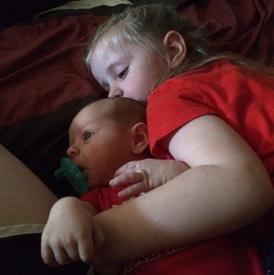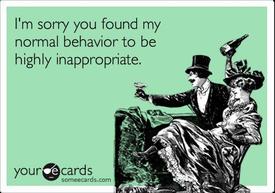The L word
Options

Brunner26_2
Posts: 1,152
The word "liberal" gets a pretty bad rap, but why? What does "liberal" mean to you? I've seen multiple users in this group make broad generalizations about liberals but get defensive if someone makes a similar generalization about conservatives or republicans. I don't think any such generalizations are helpful at all.
Here are some definitions of liberal from wikipedia:
Classical liberalism - a branch of liberalism which advocates civil liberties and political freedom with limited government under the rule of law and generally promotes a laissez-faire economic policy. [Similar to modern Libertarianism]
Modern liberalism (USA) - It combines social liberalism with support for social justice and a mixed economy. American liberal causes include voting rights for African Americans, abortion rights for women, gay rights and government programs such as education and health care.[1] Modern liberalism stands in opposition to modern American conservatism on most issues, but its relationship to progressivism is debated
Progressivism - a general political philosophy advocating or favoring gradual social, political, and economic reform
And from the hilarious Conservapedia.com - A liberal is someone who favors increased government spending, power, and control, as in ObamaCare, as well as censorship of Christianity. Increasingly, liberals side with the homosexual agenda, including supporting homosexual "marriage". Many liberals favor a welfare state where people receive endless entitlements without working. Liberals are often anti-Christian, or otherwise disagree with moral or social principles held by many American Christians. The liberal ideology has worsened over the years and degenerated into economically unsound views and intolerant ideology. Some liberals simply support, in knee-jerk fashion, the opposite of conservative principles without having any meaningful values of their own.
Agree/disagree with any of these definitions?
Here are some definitions of liberal from wikipedia:
Classical liberalism - a branch of liberalism which advocates civil liberties and political freedom with limited government under the rule of law and generally promotes a laissez-faire economic policy. [Similar to modern Libertarianism]
Modern liberalism (USA) - It combines social liberalism with support for social justice and a mixed economy. American liberal causes include voting rights for African Americans, abortion rights for women, gay rights and government programs such as education and health care.[1] Modern liberalism stands in opposition to modern American conservatism on most issues, but its relationship to progressivism is debated
Progressivism - a general political philosophy advocating or favoring gradual social, political, and economic reform
And from the hilarious Conservapedia.com - A liberal is someone who favors increased government spending, power, and control, as in ObamaCare, as well as censorship of Christianity. Increasingly, liberals side with the homosexual agenda, including supporting homosexual "marriage". Many liberals favor a welfare state where people receive endless entitlements without working. Liberals are often anti-Christian, or otherwise disagree with moral or social principles held by many American Christians. The liberal ideology has worsened over the years and degenerated into economically unsound views and intolerant ideology. Some liberals simply support, in knee-jerk fashion, the opposite of conservative principles without having any meaningful values of their own.
Agree/disagree with any of these definitions?
0
Replies
-
I think the modern liberalism definition is pretty close. I generally think of myself as progressive, but certainly not advocating a gradual shift.
I like this list for progressive, though I'm not on board with everything:
So who is a progressive? You might be one if
• You think health care is a basic human right, and that single-payer national health insurance is a worthwhile reform on our way toward creating a non-profit national health care service.
• You think that human rights ought always to trump property rights.
• You think U.S. military spending is an obscene waste of resources, and that the only freedom this spending protects is the freedom of economic elites to exploit working people all around the planet.
• You think U.S. troops should be brought home not only from Afghanistan and Iraq, but from all 130 countries in which the U.S. has military bases.
• You think political leaders who engage in "preemptive war" and invasions should be brought to trial for crimes against humanity and judged against the standards of international law established at Nuremberg after World War Two.
• You think public education should be free, not just from kindergarten through high school, but as far as a person is willing and able to go.
• You think that electoral reform should include instant run-off voting, publicly-financed elections, easy ballot access for all parties, and proportional representation.
• You think that electoral democracy is not enough, and that democracy must also be participatory and extend to workplaces.
• You think that strengthening the rights of all workers to unionize and bargain collectively is a useful step toward full economic democracy.
• You think that as a society we have a collective obligation to provide everyone who is willing and able to work with a job that pays a living wage and offers dignity.
• You think that a class system which forces some people to do dirty, dangerous, boring work all the time, while others get to do clean, safe, interesting work all the time, can never deliver social justice.
• You think that regulating big corporations isn't enough, and that such corporations, if they are allowed to exist at all, must either serve the common good or be put into public receivership.
• You think that the legal doctrine granting corporations the same constitutional rights as natural persons is absurd and must be overturned.
• You think it's wrong to allow individuals to accumulate wealth without limits, and that the highest incomes should be capped well before they begin to threaten community and democracy.
• You think that wealth, not just income, should be taxed.
• You think it's crazy to use the Old Testament as a policy guide for the 21st century.
• You believe in celebrating diversity, while also recognizing that having women and people of color proportionately represented among the class of oppressors is not the goal we should be aiming for.
• You think that the state has no right to kill, and that putting people to death to show that killing is wrong will always be a self-defeating policy.
• You think that anyone who desires the reins of power that come with high political office should, by reason of that desire, be seen as unfit for the job.
• You think that instead of more leaders, we need fewer followers.
• You think that national borders, while sometimes establishing territories of safety, more often establish territories of exploitation, much like gang turf.
• You are open to considering how the privileges you enjoy because of race, class, gender, sexual orientation, and/or physical ability might come at the expense of others.
• You believe that voting every few years is a weak form of political participation, and that achieving social justice requires concerted effort before, during, and after elections.
• You think that, ideally, no one would have more wealth more than they need until everyone has at least as much as they need to live a safe, happy, decent life.
• You recognize that an economic system which requires continuous expansion, destroys the environment, relies on rapidly-depleting fossil fuels, exacerbates inequality, and leads to war after war is unsustainable and must be replaced. Score a bonus point if you understand that sticking to the existing system is what's unrealistic.
http://www.organicconsumers.org/articles/article_12640.cfm0 -
Hahaha!! Glad my comment spun off a post... (I'm saying this in jest, truly).
In any regards, I consider myself a Classical Liberal for most intents and purposes and agree with it as the definition of "Liberal" (more so than the others)... The etymology of Liberal is from Latin meaning "to be free" and how can one be "free" when the Government tells you what you should or should not do or what you can or cannot say. I know that words and phrases can change meanings over time... but in this instance, the meaning is pretty clear. I just don't believe that one can be free if you are beholdened to a Government or a Corporation. Do I think that the Government should have some powers? Sure. For example, I agree with anti-trust laws, because they keep super powerful companies bullying and beating down their competition to create a monoply, which again keeps people from being free on the opposite sense.0 -
I'm currently in a class on political ideologies, and as far as the definition from Conservapeia goes, that's the totally opposite definition of classical liberal. In fact, the person writing for Conservapedia would probably be nicely homed in the Neo-classical liberal camp, right next to Ronald Reagan. If you read anything by John Locke, Adam Smith, or John Stuart Mill, you would see where liberalism actually began. (spoiler alert: there are basically no differences in Neo-classical liberals and classical conservatives)
Your definition of "Modern Liberalism" would actually be social welfare liberalism which is where FDR would be. I would consider myself a social welfare liberal because I believe that the rest of society benefits when we help those who are in need. I support things like public education, Medicare, and government subsidies. Which does not include endless entitlements, like Conservapedia assumes.0
This discussion has been closed.


